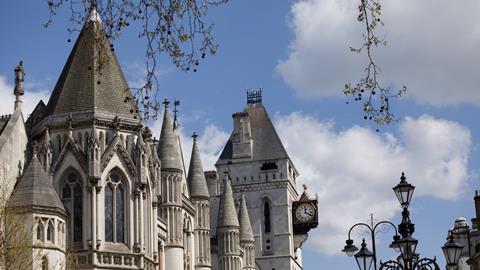The High Court has refused to grant anonymity to an expert witness who produced a discredited report.
Registered clinical psychologist Dr Parsi di Landrone requested that she should not be named in a judgment regarding a care order involving a seven-year-old child.
All parties in Liverpool City Council v Ms A & Ors had unanimously agreed that the doctor’s report was ‘fundamentally flawed’ and could not be relied upon, such that a new psychologist would need to be instructed.
Dr di Landrone told the court she feared the impact on her reputation and capacity to secure future instructions as an expert if she was named in the judgment. But Ms Justice Harris said she was bound by family court practice guidance from last year which provided that anonymisation of professional witnesses is only justified to protect the identities of the child or family. That did not apply in this case, and a speculative concern about harassment or criticism was ‘insufficient’.
The judge added: ‘Dr Parsi di Landrone has not raised any matters which would be capable of justifying departure from the usual position that experts should be named. There is a clear public interest rooted in ensuring the fair, just and efficient administration of family justice that experts should not be anonymised, the more so when their assessments and recommendations have been found to be flawed.’
Read more
The court heard that Dr di Landrone was instructed to carry out an assessment of the father in the case. He opposed the council’s care plan for his daughter and wanted her placed under shared parental responsibility between him and the authorities in his native Italy.
Following a previous court hearing, His Honour Judge Coppel had determined that the father had assaulted the mother in 2018, leaving her with bruises to her side and her face.
The expert was asked to give her opinion on aspects of the father’s personality, but her report appeared to challenge the previous finding of domestic abuse. She had written that there was no evidence that the father had been violent before or after the incident in question, and accused the mother of resorting to lying and manipulating facts to her own benefit. She concluded that the father posed no risk of domestic abuse and was not a threat to his son.
The expert was notified in writing by the parties of their concerns and that they would seek to include adverse comments about the report in the judgment.
The court heard that the doctor had already been paid in full by the local authority and the Legal Aid Agency for her work. The judge invited her to consider returning these fees ‘out of goodwill’.
The judge said the fundamental difficulty with the expert report was that, contrary to the duties of an expert, Dr di Landrone did not consider the court’s findings within a broader framework of assessment, but challenged the validity of the findings themselves.
‘It is vital instructed experts understand those rules and comply with them,’ added the judge. ‘If they fail in those duties, it not only causes harmful delay and significant cost to the public purse, but undermines fair, sound and just decision-making by the courts.’



























